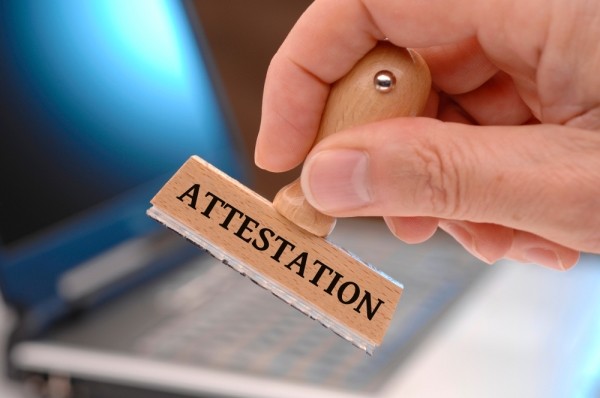In a globally connected world, having your documents, particularly your birth certificate, authenticated for use abroad is an essential task for anyone planning to move, work, or study internationally. Birth certificate attestation is a vital legal process to certify that the document is authentic and can be recognized by foreign authorities. However, navigating the bureaucracy involved in this process can be daunting, and delays are common. Understanding the procedure, common challenges, and how to avoid delays can significantly streamline the process, ensuring a smoother experience.
In this article, we will explore the critical steps involved in birth certificate attestation, the common reasons for delays, and effective strategies to prevent them.
Understanding Birth Certificate Attestation
Attestation is a process of validating a document to make it acceptable for use in a foreign country. For birth certificates, this means confirming the authenticity of the certificate and ensuring it meets the legal requirements of the destination country. The attestation process generally involves multiple stages, including local notaries, state authentication, and national or international bodies such as embassies or consulates.
Each country may have its specific requirements for document attestation, so it is crucial to know the exact procedures demanded by the destination country. Additionally, some nations require the process of Apostille instead of attestation, especially those part of the Hague Convention. Apostille is a simplified form of document legalization, but even this can take time if not managed efficiently.
Common Reasons for Delays in Birth Certificate Attestation
Before delving into the solutions, it’s essential to understand why delays happen in the attestation process. Some common reasons include:
- Incomplete Documentation: One of the most common reasons for delays is submitting incomplete or incorrect documents. Missing information, improperly filled-out forms, or the wrong types of documents can all result in significant delays.
- Lack of Awareness of Procedures: Many people are unaware of the exact attestation requirements. Failing to follow the correct procedures, such as knowing the sequence of attestation (e.g., state attestation before embassy attestation), can lead to errors and rejections.
- Not Following Timelines: Different government bodies involved in the attestation process often have their timelines. A delay at one stage can create a domino effect, delaying the entire process. This can be exacerbated by public holidays, bureaucratic backlogs, or simple inefficiencies in certain government offices.
- Outdated or Incorrect Certificates: Another common reason for delay is using outdated or incorrect birth certificates. If your birth certificate contains discrepancies such as incorrect spellings, outdated formats, or errors in names or dates, the authorities may reject your application, causing a significant delay.
- Third-Party Agents: Many people rely on third-party agencies for attestation services. While these agents can help expedite the process, choosing unreliable or inexperienced agents can cause more harm than good. Delays can occur due to miscommunication, loss of documents, or a general lack of professionalism.
- Political or Diplomatic Reasons: Sometimes, international relations between countries can affect the attestation process. Countries in political conflict or diplomatic standoffs might experience more extended processing times or temporary suspension of services.
How to Avoid Delays in Birth Certificate Attestation
Delays in birth certificate attestation can be frustrating, but they are often avoidable. Below are several strategies to help ensure a smooth, timely attestation process:
1. Research and Understand the Process
Each country has its specific requirements for birth certificate attestation, and failing to adhere to these can result in delays. The first step to avoid this is researching the exact steps involved. For instance, countries under the Hague Convention require an Apostille, while others necessitate a full attestation, including verification from multiple levels of government authorities.
Key things to know include:
- Does the destination country require a birth certificate in a specific format or language?
- Is an Apostille sufficient, or is full attestation required?
- Are there any country-specific requirements such as translations, additional documents, or additional verifications?
Knowing these answers before you start the process can prevent unnecessary back-and-forth and delays later on.
2. Double-Check Your Documents
Ensuring that your birth certificate and supporting documents are complete and free of errors is paramount. Missing or incorrect information can result in rejection at various stages of attestation. Ensure that the following details are correct on your birth certificate:
- Full names (as they appear on other legal documents, such as passports).
- Accurate date of birth.
- Correct place of birth.
- Consistent signatures where required.
It is also essential to check if any supporting documents are needed, such as a passport copy or notarized translations. Having all the necessary paperwork ready before submission ensures no time is wasted requesting additional documents later.
3. Plan Well in Advance
The attestation process can take several weeks to months, depending on the authorities involved. To avoid stress and last-minute delays, begin the process well in advance. If you are moving for a job, studying abroad, or applying for a visa, starting the attestation process as soon as possible will ensure you meet all deadlines comfortably.
It’s also important to account for any public holidays or national events that could slow down processing times. Embassies and consulates often operate on different schedules, and their operating hours should be verified in advance.
4. Seek Professional Guidance
If the process seems too complex, it might be beneficial to consult professionals who specialize in document attestation. Experienced agents or legal professionals can provide valuable guidance, ensure that all steps are followed correctly, and help prevent errors. However, choosing a reliable and experienced agent is critical. Read reviews, ask for references, and ensure that the service is well-versed in the specific requirements of the country you are dealing with.
5. Use Online Tracking Services
Many government bodies now provide online tracking systems for document attestation processes. Using these services can help you monitor the progress of your application, ensuring that you can promptly address any issues that arise. Staying informed about where your document is in the process reduces the risk of delays caused by miscommunication or lost paperwork.
6. Ensure Timely Corrections and Follow-ups
If a problem arises during the attestation process, such as a rejected document due to an error, it’s crucial to address it as soon as possible. Whether this means correcting the birth certificate or providing additional documentation, delaying the response will only push the process further.
Regularly follow up with the authorities or your attestation agent to ensure that the process is moving forward as expected. If using an agent, maintaining open lines of communication can help resolve issues swiftly.
7. Be Prepared for Unforeseen Delays
Despite careful planning, sometimes unforeseen delays can occur due to reasons beyond your control. Natural disasters, political unrest, or unforeseen bureaucratic changes can slow down the process. In such cases, having a backup plan, such as contacting embassy officials directly or seeking legal assistance, can help mitigate the impact of these delays.
Conclusion
Birth certificate attestation for international use can be a time-consuming process, but it doesn’t have to be frustrating. By understanding the requirements, planning ahead, double-checking documents, and seeking professional help when needed, you can significantly reduce the chances of delays. With a strategic approach, the attestation process can be completed smoothly, allowing you to focus on the next steps in your international journey.
In a world where globalization is increasingly the norm, the efficient handling of legal formalities like birth certificate attestation is critical. By avoiding common pitfalls and staying informed, you ensure that this important task doesn’t stand in the way of your future plans abroad.









